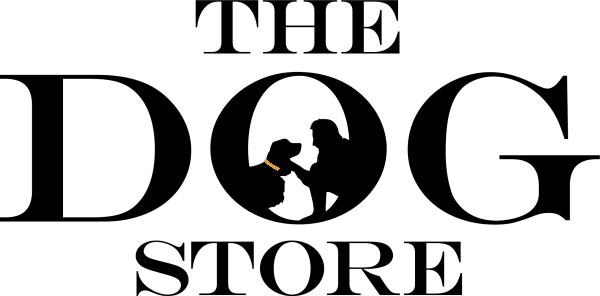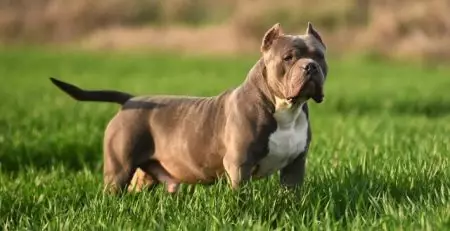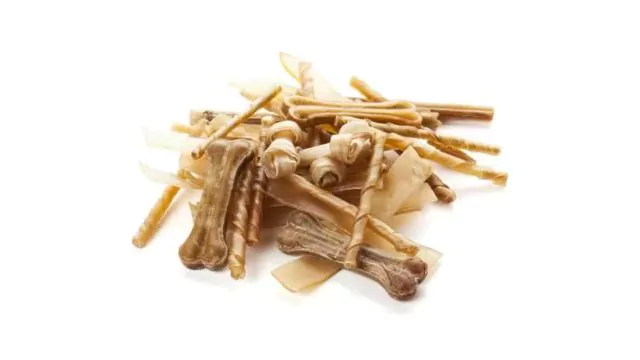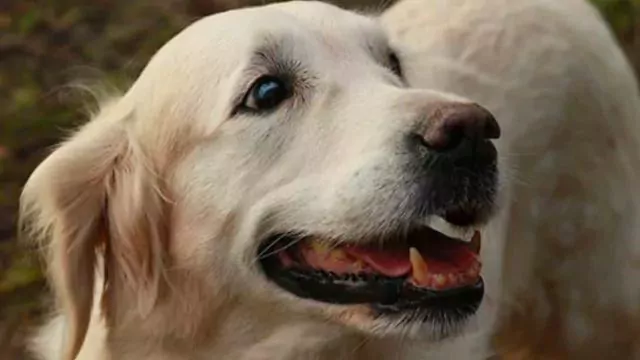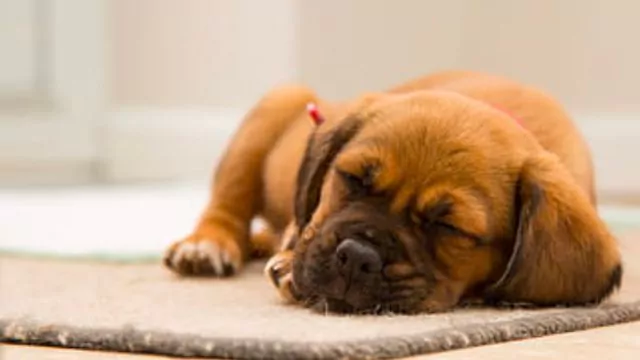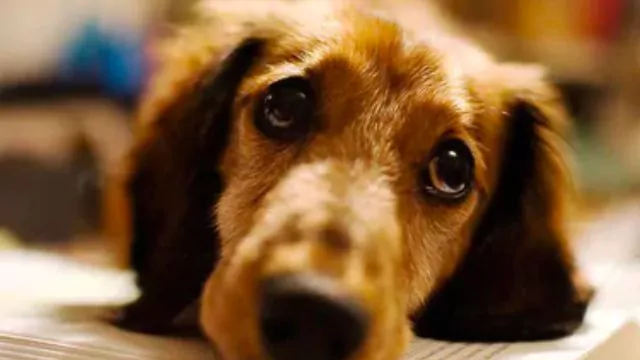Dogs Eating Faeces
Dogs that eat faeces coprophagia, puppies and adult dogs that eat poo, poop
The Problems and Treatment of Dogs Eating Faeces
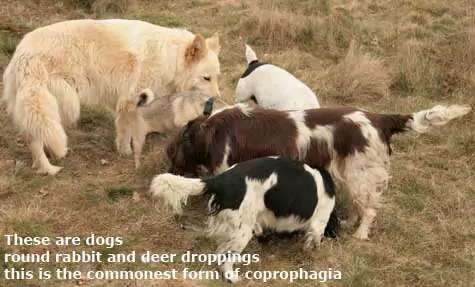
Coprophagia is the medical term for when a dog eats either its own faeces or that of another animal. There are three types of Coprophagia…
- Autocoprophagia eating its own faeces.
- Intraspecific Coprophagia eating faeces from within its own species ie another dog.
- Interspecific Coprophagia eating faeces from another species (ie cat, deer, rabbit, horse, etc)
Interspecific Coprophagia is the most common version of this trait. The cause of this behaviour is not fully understood, these are some suggestions and theories
Allelomimetic Behaviour: The dog observes either the nursing mother cleaning up the faeces and urine in the first 3.5 weeks, especially if the pup is one of the firstborn.
Therefore, the eyes open the soonest and he can see the mother stimulating and eating his sibling’s faeces. Another common reason is seeing the breeder or its owner picking up the faeces and copies this behaviour. Monkey see monkey do. A very good reason not to clean up when the dog is present.
Food or Medical: Nutritional deficiency is commonly believed to be one of the main reasons for poo eating, so it is important to rule this out first. Some other nutrient may be missing from their food, especially if they are Autocoprophagic or Intraspecific. In other words, eating either their own or other dogs faeces.
Sometimes the richer the food that has been eaten the more chance that the dog may find those faeces palatable. I have found that dogs on Burns dog food, rather than other brands appear to eat their own or other dogs faeces more than another brand of dog foods. I think that is because it has a high level of grains. Therefore, there could be something missing that the dog needs in its diet.
However, a dog fed on a good quality complete dog food should already be getting all the nutrients they require. If you are feeding low-quality food then try selecting a better quality brand? If you are not feeding enough and the dog is hungry this could trigger coprophagia eating its own or another dog.
Medical issues, especially in older dogs such as pancreatic or intestinal problems, could stimulate Coprophagia. Even overfeeding especially food with high-fat content can sometimes spark this behaviour. The most reason for this behaviour especially their ow or another dogs faeces is when this behaviour comes on suddenly then it may well be nutrient imbalance or deficiency.
Dogs fed a poor diet may resort to eating stool in an instinctual attempt to get a vitamin or mineral they are lacking. So the first place to look is at your dog’s diet, to check that it is complete and balanced. Of course, some dogs fed a balanced diet have something wrong internally that causes a problem with digesting the diet. This can leave them nutrient-deficient. (1) The best I have found on the market is
Poor quality food could also be an issue if you feed Kibble (dry food) make sure it is of high quality and not full of additives preservatives, colourants, and ethoxyquin. See my article on (1) Food and Behaviour.
It has also been suggested that eating faeces could be an aid in food digestion, in other words, a probiotic which encourages healthy flora in the gut. Neutering can also be a trigger as many dogs feel hungry after this operation which is why I believe the Vets should be sterilising rather than castrating and spaying. (2) Overview Spaying and Neutering
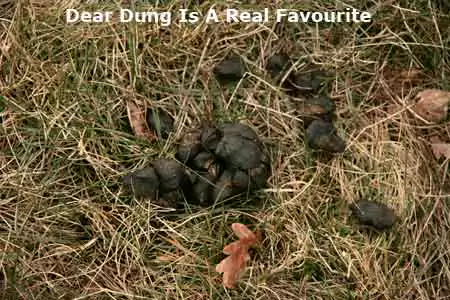
Attention Junkies: The owners may scold or shout at the dog, despite being a negative reaction it is attention all the same. Which is what some dogs may crave. Therefore, it may be advisable to pick up the faeces especially in the home area such as the garden, out of sight of the dog.
Genetic: the dog dates back at least to the Mesolithic period some 15000 years ago and fed off our middens and latrines, therefore, faeces (poo) was a staple diet. They are still very fond of human faeces.
“In a part of the Indian subcontinent you can see village dogs following naked children about waiting for them to defecate, so they can claim their prize. In parts of Africa when a baby is born, they present it with a puppy as a botty-wiper. To prehistoric dogs, our middens, latrines and village dumps must have appeared like manna from heaven. (2) History of the Modern Dog
Taste: taste may be a factor. This is the likely mechanism in interspecific coprophagia such as eating cat faeces.
Maternal behaviour: A bitch with puppies has to stimulate the pups to toilet in the first 3 or 4 weeks. She then eats and drinks the resulting faeces/urine, therefore keeping the den clean and preventing the scent of the faeces from attracting predators. The pups see this and copy. Monkey see monkey do again.
| Is your dog pulling on the Lead, Unruly, Bad Recall, Aggressive on Lead, Jumping Up? See my article and Video Clips on how to stop this. The Jingler |
SOME TREATMENTS
(3) NaturVet Coprophagia Deterrent Time Release Tablets These are slow-release tablets given to a dog with its food. it is supposed to make the faeces distasteful. I cannot state that this works as I have never used it. Obviously, this would be for dogs that were eating their own faeces, or the faeces of another dog in the same household. In that case you would have to feed all the dogs in the household the deterrent.
Some people put chilli sauce or mustard on the faeces in the hope that it will deter the dog. One of the best treatments is to simply pick up the faeces. Lack of access can sometimes break the cycle. This is obviously more difficult in cases of Inter/Intraspecific behaviour as you would normally be unaware of where the faeces are going to be.
A good quality all-round supplement may help in many cases where the dog has started in later life you can see those Here
Positive and Negative Reinforcement: This is the process of reinforcing another behaviour Instead When the dog is about to begin eating the faeces, the owner can then use a number of techniques and commands. “Leave it”, “Off “, “No”, etc.. Or using food as a lure though in some cases the dog may combine the lure and praise as something it gets when eating faeces.
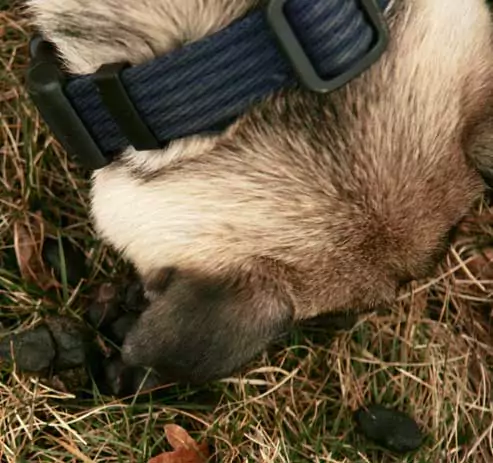
Simple aversion therapy can be done by letting the dog approach the stool on a long lead. If he starts sniffing it, give a leash check with something like a Jingler set up by the “OFF” command (see my website)
programmed before use and this should be done by a qualified behaviourist who understands how to program noise aversion therapy devices. If the dog ignores rather than eating the faeces then praise and treat immediately.
If as in the previous cure the dog is “Autocoprophagic” i.e. eating own faeces then a method that sometimes works is to feed your dog pineapple extract or slices or pumpkin seeds.
Garlic extract – due to its odour or Capsicum Oleoresin – which is very hot to the taste, or give iron tablets. These all apparently make their faeces foul-tasting. Not something even in the depth of scientific analysis do I intend to test for myself. I sell High strength Garlic in my store. see supplement link below
This can work with some dogs will depend on how obsessive the dogs need is to eat the faeces. The more obsessive the dog the more difficult it is to treat the problem. There are some health implications of coprophagia. It is not merely a nasty habit, which we see as vile and disgusting; in most cases, it causes no real problems.
However, there is a risk of ingesting internal parasites. This can happen if your dog eats the faeces of unfamiliar, infested dogs or cats or the faeces of wildlife such as rabbit deer etc. If you worm the dogs regularly then the risk lessens slightly,
Though I have had to treat a number of dogs that are severely Intraspecific Coprophagic. These dogs eat very old faeces or faeces from dogs that are ill from intestinal problems or with very loose stools.
This was making the dogs that were ingesting them very ill and emaciated. Unless you are successful in treating this level of compulsive coprophagia then it could be fatal.
The faecal-oral route can also transmit some rather nasty canine viral diseases. Hepatitis and canine parvovirus are just two of these serious diseases. Fortunately, vaccinated dogs should be covered for these potentially fatal viruses.
We now have further concern regarding Coprophagia, H5N1 Bird Flu. A cat has died in Germany from eating an infected bird; therefore, this virus has shown it can cross the species. It is also known that HN51 can be transmitted through faeces/stools, so perhaps we should be looking at this problem with renewed urgency.
I would also strongly recommend keeping the dog away from cat faeces because of the risk of organisms such as Toxoplasma gondii which can cause serious and sometimes fatal consequences, including hepatitis, pneumonia, blindness, and severe neurological disorders. The intestinal phase of this nasty disease occurs only in cats (wild as well as domesticated) therefore transmission to dogs is by ingestion of oocysts (in cat faeces) or bradyzoites in some raw or undercooked meat that has not been pre-frozen. Freezing kills off the organisms and makes it safe.
© Stan Rawlinson 2003 updated regularly if or when new information comes to light
Last update January 2011
